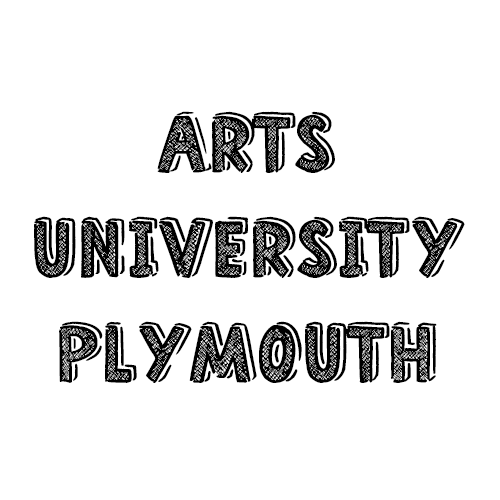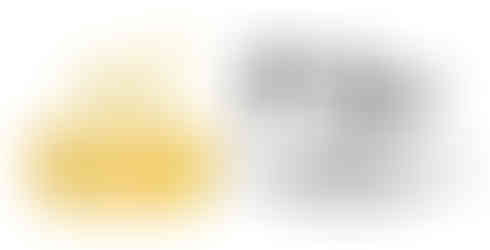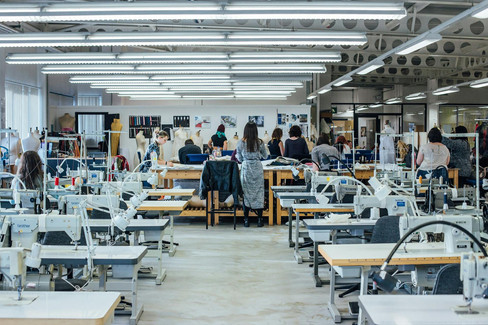Arts University Plymouth
- Emilie Collings
- Feb 22, 2024
- 6 min read
Updated: May 21, 2024


AWARD WINNER
Arts University Plymouth has won University of the Year for South West England, and Winner for South West England for Lecturers and Teaching Quality, Facilities and Student Support.
Arts University Plymouth has won University of the Year for South West England at the Whatuni Student Choice Awards (WUSCAs). The nominees and winners of these awards are selected by students based on reviews submitted by students from across the UK, and winners judged by a panel made up of prospective and current university students. Arts University Plymouth was also crowned as Winner for South West England in three additional categories: Lecturers & Teaching Quality, Facilities and Student Support. We were also awarded Second Place for South West England for our Students’ Union. Ranked out of over 100 of the UK’s top universities at an awards ceremony presented by actor and comedian Lenny Henry, Arts University Plymouth came fourth place overall in the UK category of University of the Year and top out of all universities in the South West of England.
Whatuni Student Choice Awards 2024 presented by Lenny Henry
Voted for by students, Arts University Plymouth took home second place in the UK for the Facilities award, third place overall in the Student Support category, and fourth place in the Lecturers & Teaching Quality category. Highlighting the quality of Arts University Plymouth’s provision as a leading specialist for creative arts education, the University of the Year award celebrates the overall experience of students, focusing on lecturers and teaching quality, the Students’ Union experience, facilities and student life. Arts University Plymouth was the only specialist arts university considered for this category.
The University was awarded Winner in the Facilities award category for South West England, celebrating the access students have to the wide array of subject-specific resources available across all creative disciplines. Students voted based on Arts University Plymouth’s cutting-edge resources, including Fab Lab Plymouth, diverse multimedia and photography studios, a comprehensive Materials Lab that supports innovative practices in hot glass, ceramics and biomaterials, and the university’s well-equipped Drawing Lab, Fashion and Textile studios.
Being named Winner in the Student Support category for South West England celebrates the University’s focus on student support and on promoting kindness in the processes of thinking, making and living. Now in their 12th year, the Whatuni Student Choice Awards are the only annual awards for UK universities based entirely on student opinion, with over 35,000 reviews submitted by students each year. Arts University Plymouth’s Whatuni ranking is based on reviews from 712 students, making up almost half of the leading arts university’s undergraduate student body. Arts University Plymouth ranks as a Top 10 university in the Arts, Drama & Music League Table for 2024 according to the Complete University Guide.
Prospectus:

OPEN DAYS:
Saturday 21st October 2023
Saturday 25th November 2023
Saturday 23 Mar 2024 - 10:00am — 2:00pm
About AUP:
University Arts Plymouth (UAP), formerly known as Plymouth College of Art, is a dynamic and innovative institution located in Plymouth, UK. It offers a wide range of undergraduate and postgraduate courses focused on the creative arts, including fine art, design, media, and performance. UAP is renowned for its practice-based learning approach, industry connections, and commitment to fostering creativity and innovation in its students.
Facilities
UAP provides a wealth of facilities to support the diverse needs of its students, ensuring they have access to the tools and environments necessary for their creative and academic development. Key facilities include:
Studios and Workshops:
Fine Art Studios: Large, well-lit spaces equipped for painting, drawing, sculpture, and mixed media projects.
Design Studios: Specialized spaces for graphic design, illustration, and fashion, featuring industry-standard equipment and software.
Digital Fabrication and Print Studios:
Digital Fabrication Lab: Houses 3D printers, laser cutters, CNC machines, and other cutting-edge technologies.
Printmaking Studios: Facilities for screen printing, etching, lithography, and letterpress, supporting both traditional and contemporary printmaking techniques.
Media and Performance Spaces:
Photography Studios: Professional-grade facilities for both digital and analog photography, including darkrooms and lighting equipment.
Film and Media Production Studios: Equipped with green screens, editing suites, and professional cameras.
Performance Spaces: Theatres and rehearsal rooms for drama, dance, and performance art students.
Libraries and Learning Resources:
The Charles Seale-Hayne Library: Extensive collections of books, journals, and digital resources, along with quiet study areas and collaborative workspaces.
Specialist Collections: Access to unique resources such as rare books, archives, and art collections.
Student Support Services:
Student Union: Organizes clubs, societies, and social events, providing a vibrant community life.
Health and Wellbeing Services: Includes counselling, medical services, and mental health support.
Careers and Employability Service: Offers guidance, workshops, and networking opportunities to help students launch their careers.
WORKSHOPS:
Drawing workshops:
Ceramic Studio:
Textiles Lab:
Woodworking studio:
Sewing Lab:
Glass blowing workshop:

One of the photography darkrooms:

One of the photography studios:

Green screen studio for film:

Jewellery Making Station:

The Digital Printing Station:

Courses:
BA (Hons) Illustration
This course is top of my list to choose to go to next year. I would be starting in the 3rd year to complete my BA Hons in Illustration. I would be living at home and commuting for the days I am taught, and working from home the other days.
The course at University Arts Plymouth is designed to help students develop their individual creative voice and prepare for a successful career in illustration. The course combines practical skills with theoretical knowledge, offering a comprehensive education in the field.
Course Structure and Content:
Year 3: Emphasizes professional practice and portfolio development. Students work on self-directed projects, industry briefs, and a major final project to showcase their skills.
Year 3 Modules:
RESEARCH & DEVELOPMENT
PUBLICATION
POSITIONING PRACTICE
FINAL PROJECT
Learning and Teaching Methods:
Workshops and Tutorials: Practical sessions led by experienced illustrators and industry professionals.
Lectures and Seminars: Covering theoretical and contextual aspects of illustration.
Critiques and Feedback: Regular opportunities for peer and tutor feedback to refine and improve work.
Facilities and Resources:
Dedicated Studio Spaces: For illustration students to work independently and collaboratively on their projects.
Access to Specialist Equipment: Including high-quality scanners, printers, and software like Adobe Creative Suite.
Printmaking Facilities: For experimenting with traditional techniques such as screen printing, etching, and lithography.
Industry Links and Opportunities:
Guest Lectures and Workshops: Featuring leading professionals from the illustration and creative industries.
Live Briefs and Competitions: Real-world projects and industry challenges that provide valuable experience.
Exhibitions and showcases: Opportunities for students to display their work to potential employers and the public.
Career Prospects:
Graduates from the BA (Hons) Illustration course are well-prepared for careers in various fields, including editorial illustration, children’s book illustration, animation, graphic novels, and concept art. The university’s strong industry connections and focus on professional development help students transition smoothly into their chosen careers.
BA(HONS) Textile Design
This course was one of my options for UCAS and I was given a conditional offer. I would have joined the 2nd year to pick up anything I had missed out on the previous years. I was asked to come for an interview, before I decided that Illustration was a better route for me.
YEAR 3 Modules:
RESEARCH & DEVELOPMENT
PUBLICATION
POSITIONING PRACTICE
FINAL PROJECT
Arts University Plymouth offers a dynamic and comprehensive Textile Design course that equips students with the skills, knowledge, and creative vision needed to excel in the textile industry. This course is designed to foster creativity, technical proficiency, and an understanding of the diverse applications of textiles in contemporary contexts.
The Textile Design course at Arts University Plymouth focuses on a broad range of techniques and processes, blending traditional craftsmanship with modern digital technologies. Students are encouraged to explore various aspects of textile design, including surface pattern, constructed textiles, and experimental practices. The curriculum is structured to provide a balance between practical studio work and theoretical studies, enabling students to develop a well-rounded understanding of the field.
Key Features
Studio Practice: Central to the course is the studio practice, where students have access to state-of-the-art facilities, including digital printing studios, dye labs, weaving looms, and screen-printing equipment. This hands-on approach allows students to experiment with different materials and techniques, fostering a deep understanding of the tactile qualities of textiles.
Industry Connections: The course maintains strong links with the textile industry, offering students opportunities for internships, live projects, and collaborations with industry professionals. These connections help students gain real-world experience and insights into the professional landscape of textile design.
Sustainability and Innovation: Sustainability is a core focus of the course, with students encouraged to explore eco-friendly materials and processes. The program also emphasizes innovative practices, encouraging students to push the boundaries of traditional textile design and explore new applications and markets.
Research and Development: Theoretical modules complement the practical aspects of the course, providing students with a critical understanding of historical and contemporary issues in textile design. Research skills are developed through written assignments, presentations, and projects that challenge students to think critically about the role of textiles in society.
Personal and Professional Development: Students are supported in developing their unique design identities and professional portfolios. The course includes modules on professional practice, entrepreneurship, and marketing, preparing graduates for various career paths in the textile and fashion industries.
Learning Environment
Arts University Plymouth offers a vibrant and supportive learning environment, with a strong emphasis on community and collaboration. Students benefit from small class sizes, personalized feedback from experienced tutors, and a collaborative atmosphere that encourages peer learning and networking.
Career Opportunities
Graduates of the Textile Design course at Arts University Plymouth are well-equipped to pursue diverse career paths, including roles in fashion design, interior design, textile manufacturing, trend forecasting, and more. The course also provides a solid foundation for those wishing to continue their studies at the postgraduate level.





























Comments